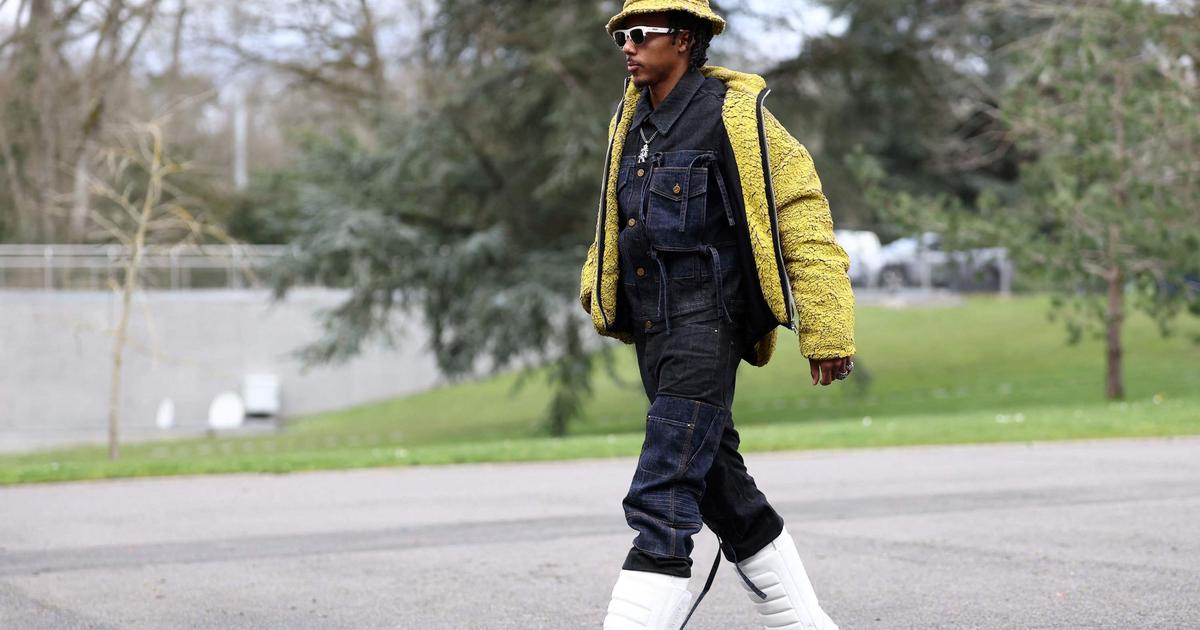After more than six months in zero gravity in the International Space Station (ISS), Thomas Pesquet found solid ground this Tuesday morning.
At the end of his two space missions - he had already made a long stay in orbit in 2016 - the 43-year-old Norman will have gravitated nearly 400 days around the Earth, a record for a French astronaut.
What awaits him today?
The games are open, cautiously explain the experts of the European Space Agency (ESA).
Read also Thomas Pesquet back on Earth: how do you recover after six months in space?
Will he be able to leave?
“Russian cosmonauts have spent more than a thousand days in space.
The rules are the same for all astronauts, Americans, Russians, Europeans… I see no reason that would prevent Thomas from returning to space ”, assures Frank de Winne, director of the European Astronaut Center in Cologne (Germany).
A new mission in the ISS is therefore not excluded.
VIDEO.
Thomas Pesquet returned to Earth
"It's important to take some time to see how the rehabilitation is going and to make sure he is in good health," said Adrianos Golemis, ESA flight doctor.
“After that, we will do what is called the certification to fly again.
We can have it four months after landing.
But theoretically, I believe that Thomas, if he wants to, can have a third mission.
"
March, unlikely
Thomas Pesquet has never hidden his desire to go to the Moon, or even to Mars. “The preparation for Mars involves a return to the Moon in order to establish an autonomous base there, as one can have in Antarctica: a base supplied from time to time, where people live in autarky. I would like to participate, ”the astronaut told Parisien Magazine last April. Next year, NASA will launch its first unmanned mission to the Earth satellite, as part of the Artemis program. Which also includes manned flights.
“The Moon is one of the possibilities for all astronauts who are active in the European astronaut corps,” confirms Frank de Winne.
They are all fit and ready for the Moon.
They have the right mentality and the right set of skills to be able to carry out these missions.
"For Thomas Pesquet, the Moon is" playable ", even considers the French astronaut Michel Tognini.
But "he may have to go after those who have carried out only one mission", specifies this former recruiter from ESA.
The competition, in fact, promises to be tough between the 18 American astronauts selected, the seven European astronauts from the “Pesquet promo”, those who will soon be selected by ESA and those from other space nations.
As for Mars, Thomas Pesquet, lucid, conceded that he was "perhaps already too old to be".
Same story with Frank de Winne, who compares the distant human expedition project with the complex sample return program by 2032: “Between bringing back 300 grams of Martian soil and launching human beings on Mars, landing them and bringing them back, there are still a lot of steps to take.
I do not believe this is becoming a reality for this generation of astronauts.
"On the other hand, leaving for the Chinese space station, launched last April, is a possible option, confirms the Belgian astronaut:" We are still in contact with our Chinese colleagues to see if we can cooperate with them in the future.
"
Pass on to the youngest
“Chef” of Thomas Pesquet, Frank de Winne does not elaborate on what will occupy the Frenchman over the next few years.
“You have to first see this with the astronaut himself, it's not something we discuss with journalists.
Typically, the tasks that astronauts do after their flight is operational support.
"
Italian astronaut Luca Parmitano, who flew just before Thomas Pesquet's second mission, is now the head of the crews office.
From the ground, he notably accompanied the flight of the Frenchman.
Other astronauts devote themselves to research on the post-ISS or on the Lunar Gateway, the future lunar space station.
Thomas Pesquet will also be able to participate in the courses that future ESA astronauts will follow.
“For example, when we have to train for spacewalks, we will use Thomas' expertise to pass it on to young people,” says Frank de Winne.
The sharing of experiences will not wait, warns Luca Parmitano: “Up to a year after the mission, we make ourselves available for research.
We tell everything, we have a lot of briefings.
We don't stop working!
"














